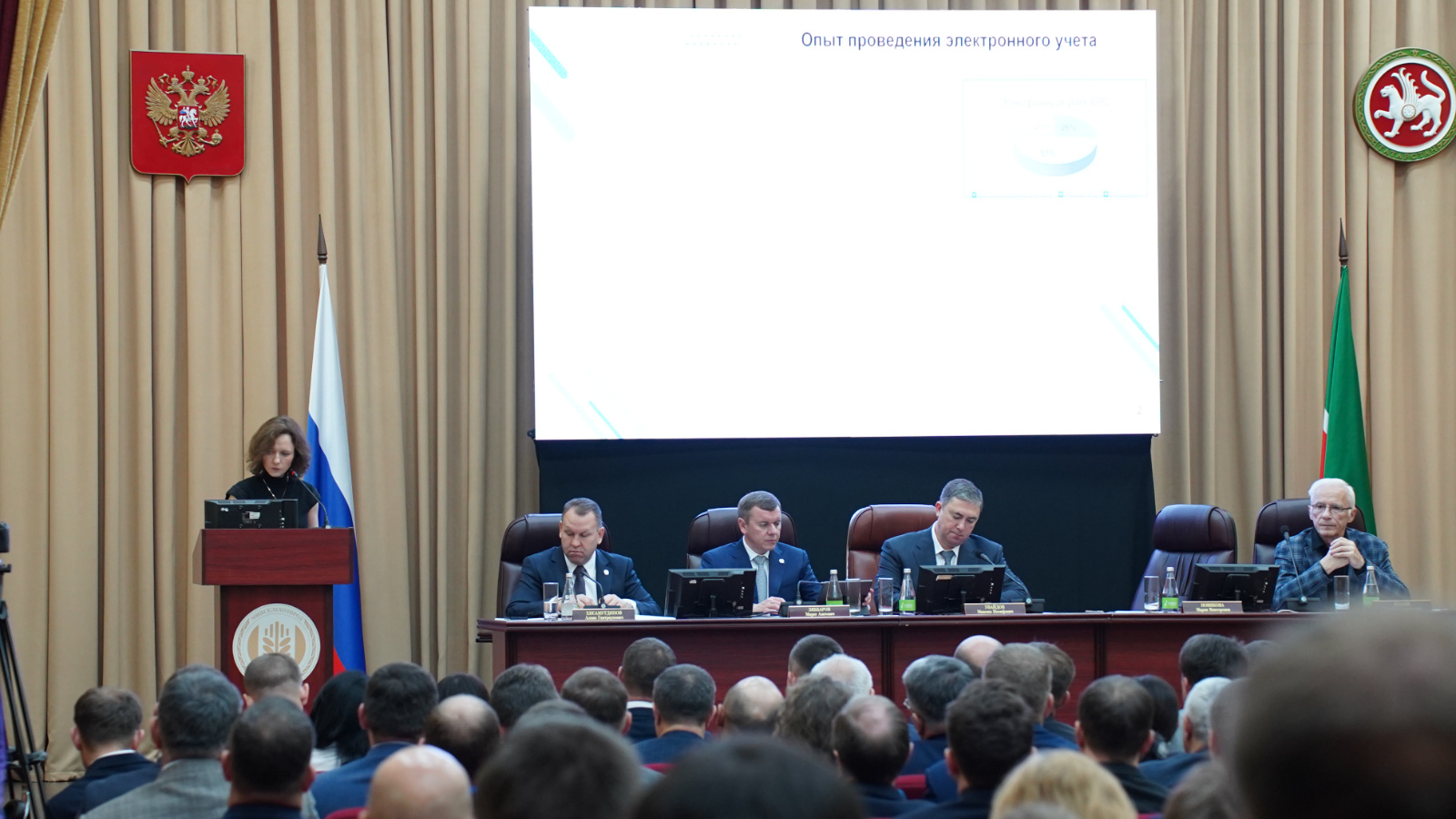The Ministry hosted an All-Russian meeting on the topic “Introduction of digital technologies in veterinary medicine”

Today, the Ministry held an All-Russian meeting via videoconferencing on the topic of introducing digital technologies in veterinary medicine. Deputy Minister of Agriculture of the Russian Federation Maxim Uvaidov, Director of the Department of Veterinary Medicine of the Ministry of Agriculture of the Russian Federation Maria Novikova, Deputy Prime Minister of the Republic of Tatarstan - Minister of Agriculture and Food of the Republic of Tatarstan Marat Zyabbarov, Head of the Main Directorate of Veterinary Medicine of the Cabinet of Ministers of the Republic of Tatarstan Almaz Khisamutdinov took part in it.
The meeting was also attended by deputy heads of the highest executive bodies of the constituent entities of the Russian Federation, in charge of issues of the agro-industrial complex and veterinary medicine, heads of executive authorities of the constituent entities of the Russian Federation, exercising powers in the field of the agro-industrial complex, representatives of specialized livestock-breeding public organizations and producers of agricultural products in the regions.
During the meeting, several key issues were discussed: the introduction of a procedure for marking and recording animals; experience in digitalization of the agro-industrial complex of the Republic of Tatarstan; introduction of digital technologies in veterinary medicine of the Republic of Tatarstan; experience of market participants in animal registration using labeling.
Those present also shared their experiences and reviewed the practices of colleagues from other regions.
Maxim Uvaidov delivered a welcoming speech. “We see good results and good experience in Tatarstan, from veterinary experiments to work with farms on labeling and recording animals. Thank you for taking a significant part in the All-Russian meeting,” he noted.
Maria Novikova made a presentation on the topic “Implementation of the procedure for marking and recording animals. Legal regulation". She noted that a current topic is being discussed at the meeting today; by September next year, a database on a number of animal species should be formed and registration should be ensured. “We need to work with the population and explain why this is needed. This is necessary for the well-being of the herd and for the benefit of the owner,” noted Maria Novikova.
Next, Marat Zyabbarov made a presentation; he spoke about the experience of digitalization of the agro-industrial complex of the Republic of Tatarstan. According to him, the Ministry was assigned several important tasks. However, the main goal was not simply digitalization for the sake of digitalization, but to achieve growth in agricultural productivity.
For this purpose, the following tools to support farmers have been developed:
Automation support program for agribusiness;
Advanced training program for farm managers to provide the necessary knowledge and skills in the field of digital technologies;
State Information System of the Agro-Industrial Complex.
Using direct communication with agricultural producers and their information systems, this GIS provides accessible and understandable analytics for farmers, districts, think tanks, as well as federal and regional authorities. The key user is the ministry, and this allows you to receive reliable operational information on the industry, quickly respond to indicators and make effective decisions.
In the first year of the project to develop the State Information System, based on experience in working with data, the subordinate organization responsible for the digitalization of the agro-industrial complex of JSC “RIVC” developed 9 modules, which are already actively used by agricultural producers and control and supervisory authorities.
“In conclusion of my speech, I want to emphasize that the digitalization process is not limited to one year, but is a long, step-by-step process. For its successful implementation, we will continue to improve the functionality of already launched modules and integrate them with other systems and services,” concluded Marat Zyabbarov.
Almaz Khisamutdinov reported in his report that digital technologies have penetrated into all spheres of human activity. They are the norm in the everyday life of citizens and society. To maintain epizootic well-being, increase the productivity and safety of animals, it is also impossible to do without innovative solutions.
“Electronic document management allows managers and specialists to rationally use their time and resources. The process of agreeing on documents and making decisions has accelerated significantly,” he noted.